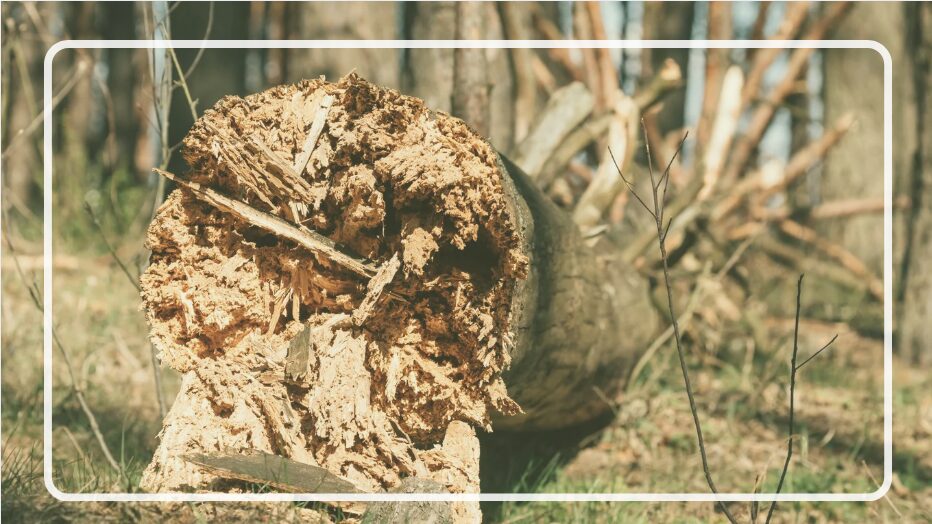When most people think of termites, they immediately worry about the damage these pests can do to homes. However, trees—especially mature and healthy-looking ones—are just as vulnerable. It’s a common misconception that termites only target dead or rotting wood. In reality, termites can and do attack living trees, and if left untreated, they can seriously weaken or even kill them.
How Termites Attack Trees
Termites, particularly subterranean species, are naturally attracted to cellulose, the organic fiber found in wood. Even in healthy trees, small wounds in the bark, stress from drought, or slight internal decay can create perfect entry points. Termites typically start by infesting the roots or the base of the trunk, tunneling inside where their activity often goes unnoticed. Over time, as they consume the tree’s core structure, they disrupt the tree’s ability to transport water and nutrients—eventually leading to decline, structural weakness, or death.
One of the reasons termites are so dangerous is that they work silently. A tree can look relatively healthy from the outside even as termites are hollowing it out from within. By the time you notice signs like thin foliage, sudden branch dieback, bark splitting, or a hollow sound when tapping the trunk, the infestation could already be advanced.
Are Some Trees More at Risk?
While all trees can be at risk, termites tend to favor species with softer wood or trees that are already under stress. Fruit trees, palm trees, and hardwoods suffering from drought, poor soil conditions, or mechanical damage are often prime targets. Trees located near irrigation systems, leaking sprinklers, or areas with heavy mulch can also become termite magnets due to the excess moisture that these insects crave.
Another risk factor? Location. If your property has a history of termite activity—whether in the soil, an old stump, or a nearby structure—the chances of termites attacking your trees are significantly higher. Infested trees, in turn, can become bridges for termites to eventually reach your home.
How to Protect Your Trees
The best defense against termite damage is early detection and proactive care. Regularly inspecting your trees for signs of stress or infestation can make a huge difference. Keeping trees healthy through proper watering, mulching, and pruning reduces their vulnerability. Removing deadwood, stumps, and excessive mulch around the base also helps minimize attractants.
Using Integrated Pest Management (IPM) strategies, like combining natural tree care with advanced solutions such as the Sentricon® System, offers a highly effective and environmentally friendly way to eliminate termites before they can cause irreversible damage.
Don’t Wait Until It’s Too Late
If you suspect that termites might be attacking your trees—or if you simply want peace of mind—the best thing you can do is act early. A professional inspection can detect hidden problems and suggest tailored solutions to protect your trees and your entire landscape.
Toro Pest offers free inspections to help you catch termite issues before they become disasters. Our experts specialize in protecting trees naturally and effectively, using eco-friendly methods that work.
For fast and dependable termite control services look no further than Toro Pest Management. Since 1969, Toro’s has been a local, family-owned business committed to friendly service, effective solutions, and 100% customer satisfaction. We offer FREE INSPECTIONS! Besides we are one of the very few companies in Florida that is CERTIFIED as SENTRICON SPECIALIST.

Cities Covered:
Aventura, Bal Harbour, Bay Harbor Islands, Biscayne Park , Coral Gables, Cutler Bay, Doral , El Portal, Florida City, Golden Beach, Hialeah, Hialeah Gardens, Homestead, Indian Creek, Key Biscayne, Medley, Miami, Miami Beach, Miami Gardens, Miami Lakes, Miami Shores, Miami Springs, North Bay Village, North Miami, North Miami Beach, Opa-locka, Palmetto Bay, Pinecrest, South Miami, Sunny Isles Beach, Surfside, Sweetwater ,Virginia Gardens, West Miami among many other cities in South Florida.


0 responses to “Can Termites Really Kill a Healthy Tree?”